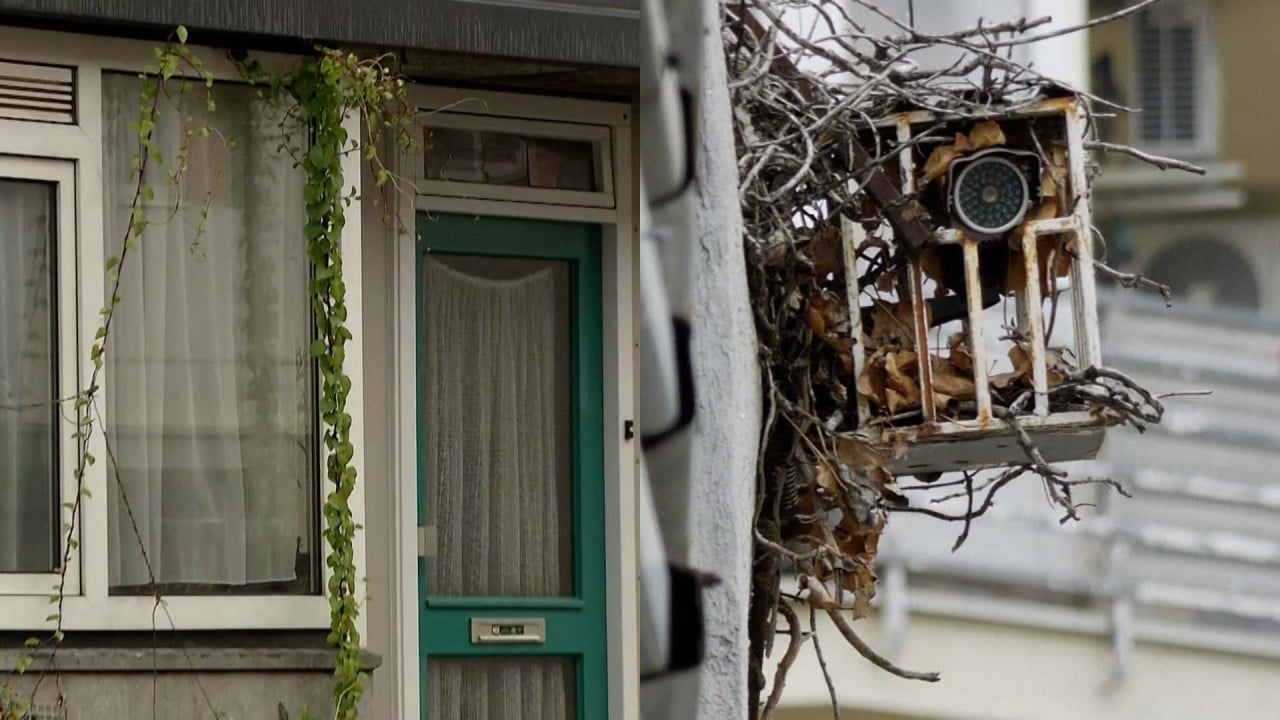
Ireland doesn’t want to shut the door to China despite growing strains, says Foreign Minister Simon Coveney
- Minister says Dublin will follow tighter EU rules on foreign investment – imposed amid growing concerns about ties with Beijing – but China ‘can’t be ignored’
- Coveney condemns as ‘unacceptable’ an illicit Chinese police station that was operating in Dublin and said the embassy has been asked to prevent a repeat
At the time, Donald Trump had brought the United States into trade wars with China and the European Union, and – following the United Kingdom’s acrimonious Brexit vote – Ireland was seeking to diversify its trading partners.
The EU has tightened its rules on Chinese investments, and a heated debate is being waged about economic dependency on China. Russia’s invasion of Ukraine, and Beijing’s refusal to condemn it, has only increased concern across the continent.
In an interview in Dublin this week, Coveney admitted that economic relations with China had become more complicated.
He said Ireland would follow the EU’s lead on dealing with Beijing and would soon be implementing the foreign direct investment (FDI) screening tools devised by Brussels to protect critical assets.
China’s ties with Ireland fray over Huawei row, detained businessman
But within the space that is afforded member states to pursue their own interests, Ireland will remain open to doing business with the world’s second-largest economy.
“The relationship between the EU and China is a complicated one that I think the EU continues to – I wouldn’t say struggle with – but it certainly is finding it difficult to find a sound footing, because China is a huge country, a huge economy that is growing, it’s a trade partner that can’t be ignored.
“But of course, it’s a competitor, too. And there are very real concerns, in relation to growing Chinese influence,” Coveney said.
Despite being 19th out of 27 EU countries in terms of population, Ireland is the bloc’s fourth-biggest exporter to China.

In the first nine months of this year, it shipped US$14.4 billion worth of goods to the world’s second-largest economy, including more than US$5 billion worth of microchips and almost US$4 billion worth of vaccines, Chinese customs figures show.
The United States is by far the biggest investor in Ireland, with American firms from Google to Pfizer accounting for more than 70 per cent of inbound FDI.
But notable Chinese firms are present too, including Huawei Technologies, TikTok, and Wuxi Biologics, a vaccine contract manufacturer that is building two plants in the border town of Dundalk.
Ireland’s positioning on Huawei is perhaps most indicative of how the geopolitical situation is affecting economic policy.
Last month, the Shenzhen-based giant announced a new €150 million (US$151 million) European cloud hub in Dublin.
A press release featured a beaming Leo Varadkar – the deputy prime minister who will begin his second spell as taoiseach, or prime minister, in December under the coalition government’s rotation agreement – shaking hands with senior Huawei executives, a rarity at a time when the company is being squeezed out of many Western markets.
A week later, Irish media reported that the government was moving to ban telecoms companies in Ireland from using Huawei equipment in their critical infrastructure networks over fears it could be accessed by the Chinese state.
The dichotomy was not lost on Coveney. “We are a small but very globalised country and therefore I don’t think Ireland should ignore China in the context of trade, and we don’t do that – the presence of Huawei here is evidence of that,” Coveney said.

“But I think we also need to be cautious about how we protect data and the questions that we ask of companies and countries, if we believe there’s a risk to that.”
Coveney confirmed that the government had “talked a lot” with the US and UK about Huawei, but despite previous reports that Washington was pressuring Ireland to ban the Chinese firm, he said that was not the case today.
“I don’t think we feel the pressure. I mean, obviously, we speak to the US and to the UK. They are close partners of Ireland from a trading perspective. We’ve got a very big trading relationship with the US, it’s worth about €100 billion a year.
“So we talked to them a lot about that [Huawei], but no, I don’t think it would be fair to say that we feel pressure,” Coveney said.
But while the minister – who is expected to leave his position in December’s government reshuffle – says China is too big to ignore, it is “not too big that we should be intimidated to call China out when we have a difficulty with something that they’re doing”.
“We experienced this very strange development of a regional Chinese police station effectively opening in Dublin.
‘Rock the boat’: Hazel Chu urges Ireland to stand up to China
“This is completely unacceptable, as far as I’m concerned, and we made it very clear to the Chinese embassy that it was their responsibility to make sure that it closed and didn’t happen again,” he said, adding that the embassy “responded quickly” in shutting it down.
Tommy Fanning, the head of strategy policy at the Industrial Development Agency (IDA), said the inbound investment body hoped to attract more Chinese firms to Ireland in the future.
“We have a strong office in China and we are out there talking to Chinese multinationals in terms of their future investments. That will all be done within the context of the legislation,” Fanning said.


